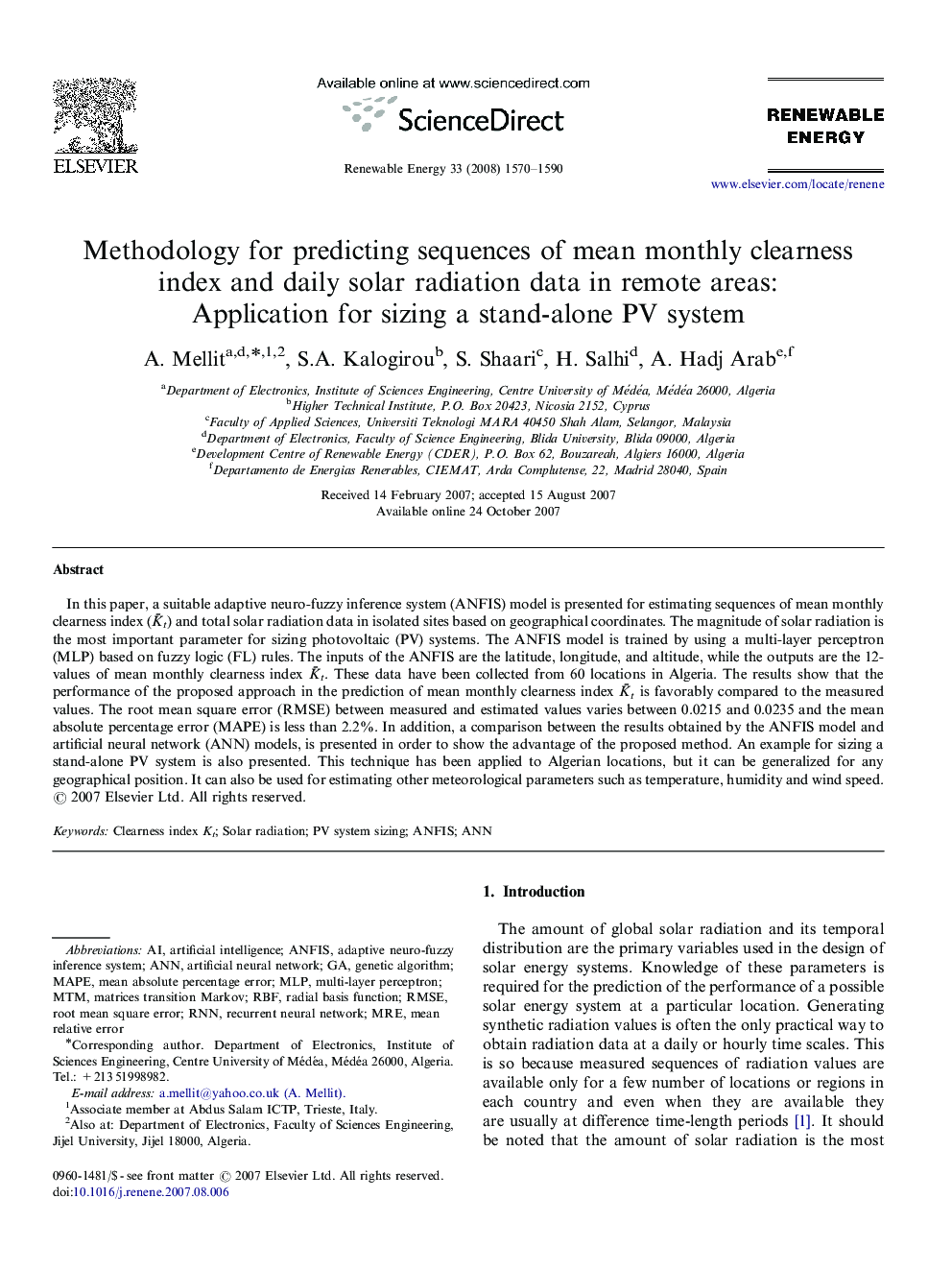| Article ID | Journal | Published Year | Pages | File Type |
|---|---|---|---|---|
| 302667 | Renewable Energy | 2008 | 21 Pages |
In this paper, a suitable adaptive neuro-fuzzy inference system (ANFIS) model is presented for estimating sequences of mean monthly clearness index (K¯t) and total solar radiation data in isolated sites based on geographical coordinates. The magnitude of solar radiation is the most important parameter for sizing photovoltaic (PV) systems. The ANFIS model is trained by using a multi-layer perceptron (MLP) based on fuzzy logic (FL) rules. The inputs of the ANFIS are the latitude, longitude, and altitude, while the outputs are the 12-values of mean monthly clearness index K¯t. These data have been collected from 60 locations in Algeria. The results show that the performance of the proposed approach in the prediction of mean monthly clearness index K¯t is favorably compared to the measured values. The root mean square error (RMSE) between measured and estimated values varies between 0.0215 and 0.0235 and the mean absolute percentage error (MAPE) is less than 2.2%. In addition, a comparison between the results obtained by the ANFIS model and artificial neural network (ANN) models, is presented in order to show the advantage of the proposed method. An example for sizing a stand-alone PV system is also presented. This technique has been applied to Algerian locations, but it can be generalized for any geographical position. It can also be used for estimating other meteorological parameters such as temperature, humidity and wind speed.
